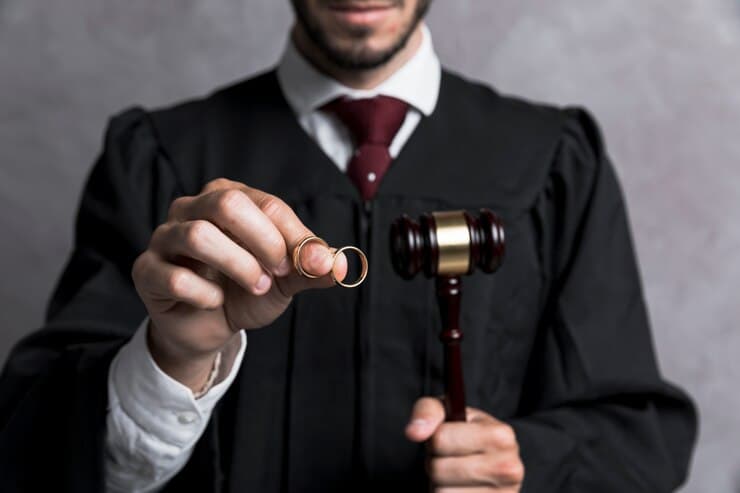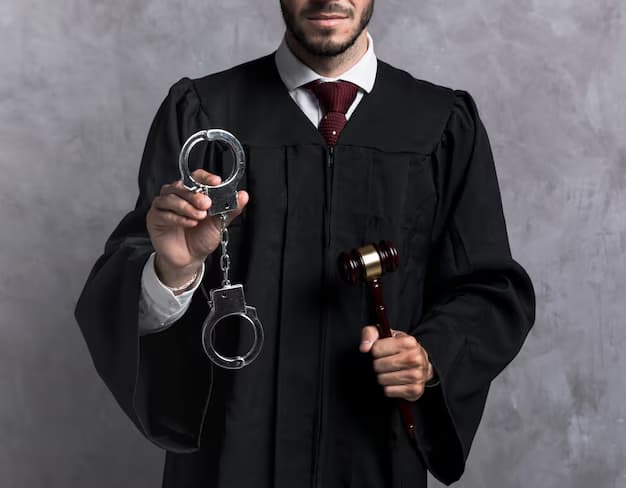 Google Ads Done Right – More Clicks, Less Waste!
Google Ads Done Right – More Clicks, Less Waste!
The Role of Criminal Justice Attorneys in Plea Bargaining
Written by johnandrew » Updated on: June 17th, 2025

Introduction
Plea bargaining is a critical aspect of the criminal justice system that affects a significant percentage of cases. It allows defendants to negotiate a resolution to their charges without going to trial, often resulting in reduced sentences or lesser charges. Criminal justice attorneys play an essential role in this process, guiding their clients through the complexities of plea negotiations. This article explores the function of criminal justice attorneys in plea bargaining, including their strategies, benefits, and the implications of these negotiations for defendants.

Understanding Plea Bargaining
What is Plea Bargaining?
Plea bargaining involves an agreement between a defendant and a prosecutor. In exchange for a guilty plea to a lesser charge or a more lenient sentence, the defendant typically waives their right to a trial. This process can significantly reduce the time and resources expended by the court system and can often lead to more favorable outcomes for defendants.
Types of Plea Bargains
Charge Bargaining: This involves negotiating for a lesser charge than the original one. For example, a defendant charged with felony drug possession might negotiate to plead guilty to a misdemeanor.
Sentence Bargaining: In this case, the defendant agrees to plead guilty to the original charge in exchange for a more lenient sentence. This could involve reduced jail time or probation instead of incarceration.
Fact Bargaining: This type of plea deal involves an agreement on specific facts of the case that will not be contested during the proceedings. This can influence the charges or the sentence.
The Role of Criminal Justice Attorneys
1. Evaluating the Case
One of the primary responsibilities of a criminal justice attorney during the plea bargaining process is to evaluate the strengths and weaknesses of the case. This evaluation includes:
Analyzing Evidence: Attorneys review the evidence against the defendant, including witness statements, physical evidence, and any potential defenses that could be raised in court.
Assessing Legal Options: They consider all legal avenues available, including the likelihood of success at trial versus the benefits of accepting a plea deal.
Understanding Client Circumstances: Attorneys must understand the personal circumstances of their clients, including their criminal history, personal goals, and the impact of a conviction on their future.
2. Advising the Client
Once an attorney has evaluated the case, they advise their clients on the best course of action. This includes:
Explaining Plea Options: Attorneys outline the different plea options available to the defendant, including potential benefits and drawbacks.
Discussing Potential Outcomes: They explain the possible outcomes of going to trial versus accepting a plea deal, including potential sentences and the impact on the defendant’s criminal record.
Clarifying Consequences: Attorneys ensure that clients understand the long-term implications of pleading guilty, including how it may affect employment, housing, and other aspects of their lives.
3. Negotiating with Prosecutors
Criminal justice attorneys act as intermediaries between their clients and the prosecution. This involves:
Building Relationships: An attorney with established relationships with local prosecutors can often negotiate more effectively. These relationships can lead to more favorable terms for the defendant.
Presenting a Strong Argument: Attorneys advocate for their clients by presenting compelling arguments for why a plea deal should be considered. This could include highlighting mitigating circumstances or potential weaknesses in the prosecution's case.
Countering Proposals: Attorneys are skilled negotiators who can counter initial proposals from prosecutors, working towards a more favorable deal for their clients.
4. Preparing for Court
If a plea agreement is reached, the attorney prepares the client for the court proceedings:
Explaining the Process: They provide detailed explanations of what will happen during the court hearing, ensuring that the defendant knows what to expect.
Drafting Legal Documents: Attorneys prepare and review all necessary legal documents related to the plea agreement to ensure accuracy and compliance with court requirements.
Representing the Client in Court: During the court proceedings, the attorney represents the defendant, ensuring that their rights are protected and that the plea agreement is upheld.
The Benefits of Plea Bargaining
1. Reduced Sentences
One of the most significant advantages of plea bargaining is the potential for reduced sentences. Defendants can often secure lesser penalties than they might face if convicted at trial.
2. Certainty and Control
Plea bargaining offers defendants a degree of certainty and control over their outcomes. Instead of facing the unpredictability of a jury trial, defendants can negotiate terms that are more favorable to them.
3. Saving Time and Resources
Both the defense and the prosecution save time and resources through plea bargaining. Trials can be lengthy and expensive; resolving a case through a plea deal allows both parties to allocate their resources more efficiently.
4. Reduced Charges
Defendants may be able to negotiate for lesser charges, which can lead to less severe consequences, including shorter jail time or reduced fines.
Potential Drawbacks of Plea Bargaining
1. Coercion Concerns
Some defendants may feel pressured to accept a plea deal, even if they believe they are innocent. The fear of harsher penalties if convicted at trial can lead individuals to make decisions that are not in their best interest.
2. Criminal Record Implications
Pleading guilty, even to a lesser charge, results in a criminal record. This can have lasting implications for employment, housing, and other aspects of life.
3. Limited Appeal Options
Once a plea agreement is accepted, options for appeal are typically limited. Defendants may find it challenging to contest the plea deal later, even if new evidence arises.
FAQs About Plea Bargaining and Criminal Justice Attorneys
1. What is the primary role of a criminal justice attorney in plea bargaining?
The primary role is to evaluate the case, advise the client on their options, negotiate with prosecutors, and represent the client in court.
2. Can I negotiate a plea deal without an attorney?
While it is possible to negotiate a plea deal without an attorney, it is highly discouraged. An experienced attorney can provide valuable insights and advocate for better terms.
3. How does a criminal justice attorney determine whether to accept a plea deal?
They assess the strength of the prosecution's case, discuss potential outcomes with the client, and weigh the risks of going to trial versus accepting a plea.
4. What should I discuss with my attorney before accepting a plea deal?
Discuss the specifics of the plea offer, potential consequences, and how the plea might affect your future, including employment and personal relationships.
5. Can a plea bargain be rejected by the judge?
Yes, a judge can reject a plea agreement if they believe it is not in the interests of justice or if the terms are inappropriate.
Conclusion
The role of criminal justice attorneys in plea bargaining is multifaceted and crucial for defendants navigating the complexities of the legal system. By evaluating cases, advising clients, negotiating effectively, and preparing for court, these attorneys provide essential support that can lead to more favorable outcomes. While plea bargaining offers significant benefits, it also comes with potential drawbacks that defendants must consider carefully. Ultimately, having a knowledgeable and experienced criminal justice attorney by your side can make all the difference in achieving the best possible resolution to your case.
Note: IndiBlogHub features both user-submitted and editorial content. We do not verify third-party contributions. Read our Disclaimer and Privacy Policyfor details.
Copyright © 2019-2025 IndiBlogHub.com. All rights reserved. Hosted on DigitalOcean for fast, reliable performance.













